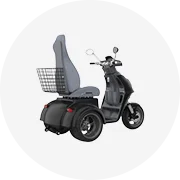

Factory Direct Heavy Duty U-Shape 3 4 6 Axles End Tipper Dump Truck Trailers Semi Tipping Trucks For Sale At Competitive Prices


















Selecting the right Volvo tipper for sale is crucial for businesses in the construction and mining sectors. These robust vehicles are designed to transport a variety of materials over different terrains. Understanding the various models, such as the Volvo FM12 tipper and the Volvo FMX 460 8x4 tipper, is essential for making an informed purchase decision.
The range of Volvo tippers includes models suitable for diverse applications. From the versatile Volvo 12 wheeler tipper to the powerful Volvo 460 tipper, each truck is built to meet specific operational requirements. Specifications such as payload capacity, engine power, and chassis design are tailored to optimize performance and efficiency.
Volvo tippers are not just limited to construction sites; they are also integral to waste management and forestry operations. For instance, chipper trucks are specialized versions designed for the forestry industry. Features like advanced drivetrains and durable materials ensure that these trucks can handle the demands of various industries.
The construction of a Volvo tipper focuses on longevity and resilience. High-strength steel and reinforced structures are standard, ensuring that the vehicle can withstand heavy loads and harsh conditions. The durability of these trucks is a testament to the meticulous design and engineering that goes into every model.
Investing in a new Volvo tipper truck comes with several advantages. The efficiency of operation, coupled with the ergonomic design, ensures that drivers can operate the vehicle safely and comfortably. Furthermore, the integration of modern technology enhances the overall functionality and reliability of these trucks.
When considering a Volvo tipper price, it's important to assess the total cost of ownership, which includes factors like fuel efficiency, maintenance costs, and vehicle lifespan. Prospective buyers should evaluate their needs carefully to select a model that aligns with their operational requirements and budget considerations.